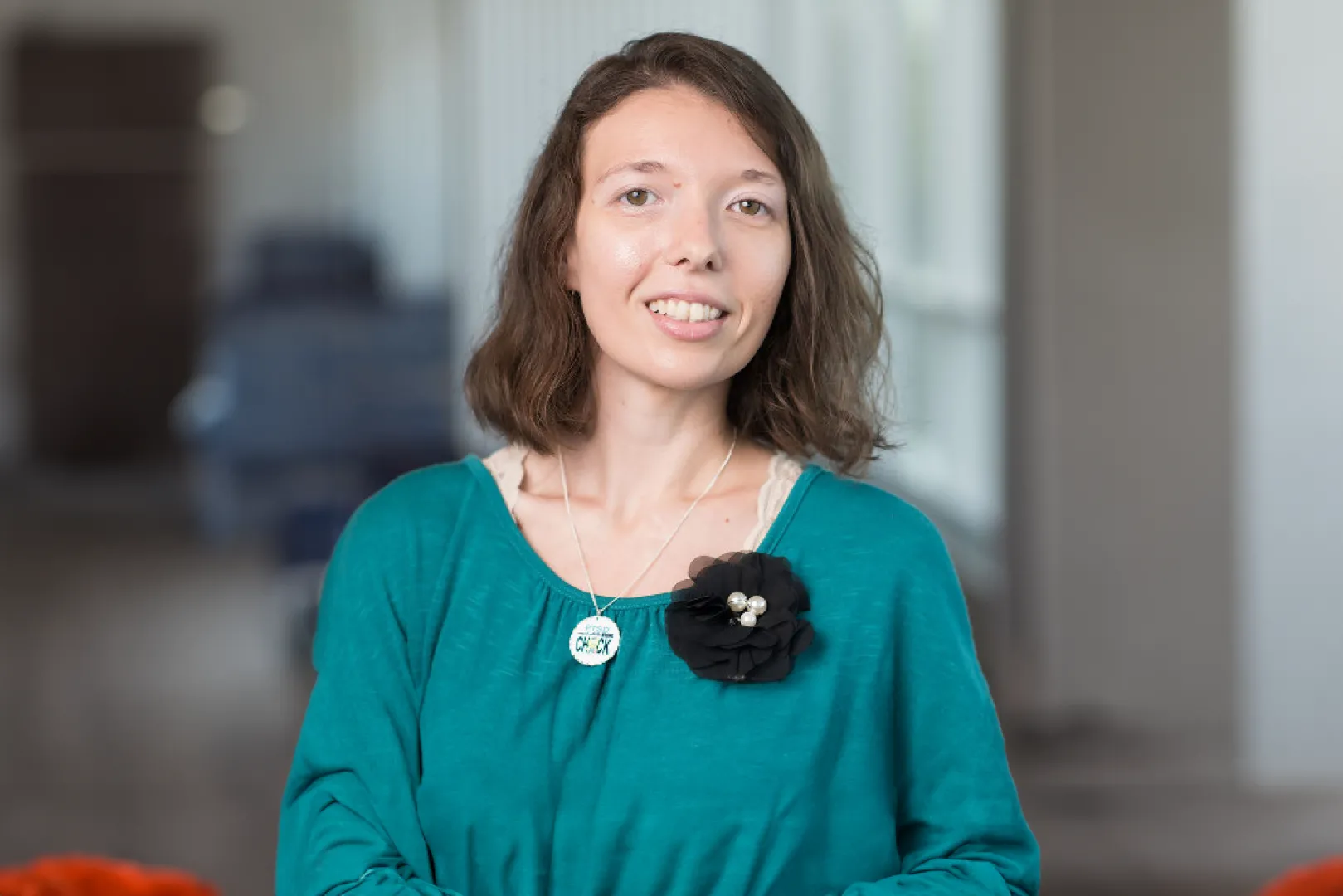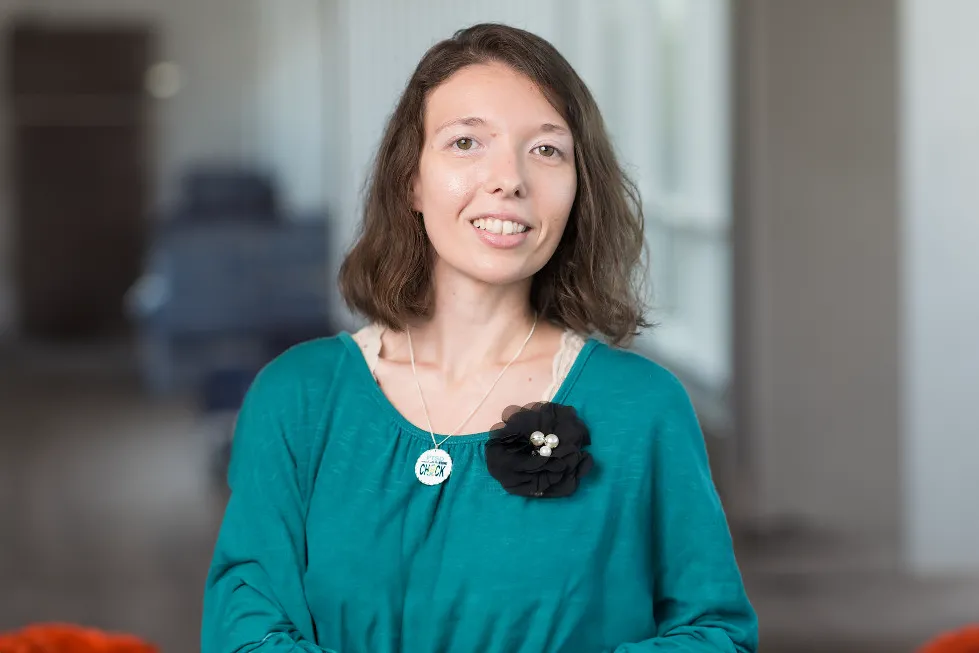“Going to college wasn’t a possibility for me,” says assistant adjunct professor for the administration of justice specialization at Germanna. “I never even applied to college when I was in high school.”
Page County native Wendy Bundy is the definition of a first-generation student. Neither of her parents even have a high school diploma.
“My mom has a ninth-grade education, and my dad has a sixth-grade education, so they had no knowledge of what higher education even looked like,” says Professor Bundy.
With no prior understanding of a college education and no set plans after graduating high school, Professor Bundy went straight into the workforce. She began a career as a 911 dispatcher at just 18 years old, lacking real world experience beyond her hometown environment. Professor Bundy underwent logistical training for her new role, learning how to manage radio traffic and appropriately conduct and document phone calls. She wasn't prepared for how to handle the emotional weight of those calls once her shift was over.
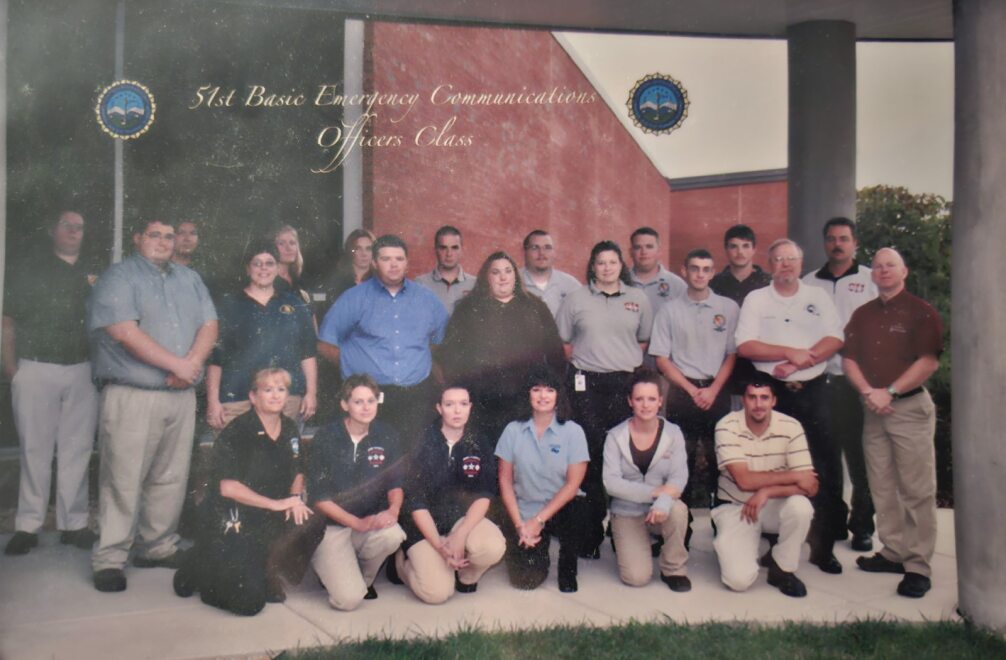
While on the job, Professor Bundy met a retired K-12 librarian.
Professor Bundy enrolled in courses at Laurel Ridge Community College, formerly Lord Fairfax Community College, and began juggling her college coursework with her dispatcher workload. But though her classes were going well and she was enjoying learning in a higher education environment, her role as a dispatcher was starting to take a toll on her mentally and physically.
“A lot of that contributed to the traumatic calls I received when I was working. I dealt with house fires resulting in losses and strenuous calls involving law enforcement. I wasn’t prepared to deal with those things when I stepped into the role. I hadn’t learned how to mentally take care of myself or implement good coping skills or outlets, and it really messed with me over time.”
After losing one of her coworkers to a medical emergency on the job, Professor Bundy made the difficult decision to leave her full-time role in 2011. She stayed on the team, working part-time for another year, and she tried to return to her full-time role for a short period in 2016, but sitting in that chair would never feel the same for her.
And though she had finished two associate degrees in liberal and general studies, Professor Bundy was unsure of her next steps.
Struggling with her mental health and PTSD from her time in this field, she hopped between jobs trying to find the right fit.
“I knew I still wanted to help people, but I couldn’t do it from the hot seat,” she says.
She decided to continue her mission of helping others through paid and volunteer experiences with the Department of Aging and Rehabilitative Services (DARS), Department of Corrections (DOC), and most importantly, peer support roles. Today, Professor Bundy is a Department of Behavioral Health and Developmental Services (DBHDS) certified state trainer for Peer Recovery Specialists and a Mental Health First Aid-Adult (MHFA-A) Instructor, where she teaches and trains people from all walks of life on these topics.
During her time of job exploration, one thing she could always lean on to pour her energy into was her education.
She decided to go back to school, earning two bachelor’s degrees—one in sociology from American Public University, the other in criminal justice from Columbia Southern. She then went on to receive her first master’s degree in criminal justice from American Public University and her second master’s degree in library sciences from Clarion University.
It wasn’t until midway through her criminal justice master’s program in 2016 that she identified teaching as a potential career path for herself.
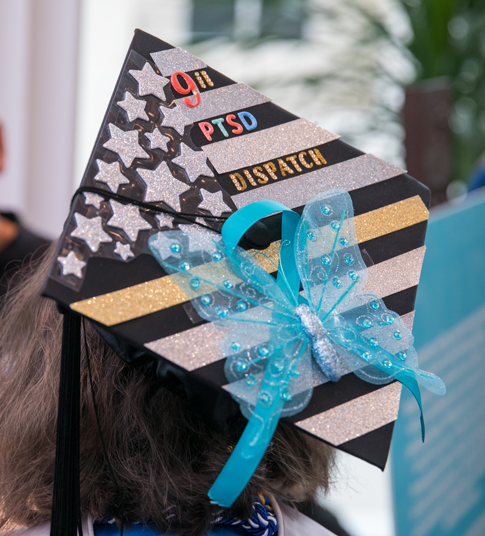
“I had many influential instructors who helped me along my journey and played a significant part in my college success, so I was inspired to do the same for students,” she says.
Today, Professor Bundy teaches introductory criminal justice and law enforcement courses at Germanna. She believes she’s found her calling.
“I absolutely love what I do. I love sharing my background in criminal justice and being able to help my students from my own personal experiences.”
Professor Bundy also makes sure to place a large emphasis on mental health and self-care in her courses, something she wishes she’d had before starting her career as a 911 dispatcher.
She also leads her classroom in the way that her community college instructors did—with grace.
“I remember what it was like to be a student juggling many things at once, so I always try to give my students grace as long as they’re communicating to me what their needs are,” Professor Bundy says.
To continue her advocacy work for mental health outside of the classroom, Professor Bundy delivers presentations at 2-3 conferences a year, speaking on such topics as living with PTSD and remaining calm in the “hot seat,” a term used to describe the tense, high-stress seat of a 911 dispatcher.
Yoga and mindfulness are two of Professor Bundy’s favorite tools to deal with stress. Last year, she became a registered yoga instructor, and she was recently invited to facilitate a chair yoga session for faculty during Germanna’s Professional Development Day.
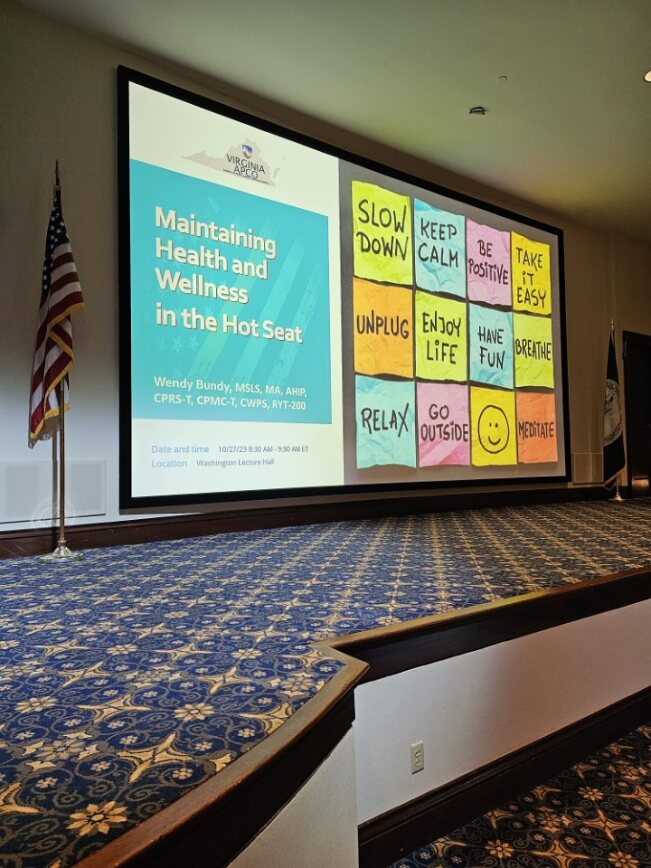
For her, starting the conversation on mental health is a key piece of breaking the stigma against getting help—a narrative that aligns all too well with her personal story.
And though Professor Bundy is passionate about her advocacy work and never fails to jump at new opportunities to help and educate others, she tries to remain grounded and not get too tied to her professional identity.
“I was so wrapped up in my professional identity as a 911 dispatcher that I forgot I was a mother, wife, daughter, and friend,” she says.
Now, she prioritizes herself, her husband, and her three rescue dogs, who take on the role of her children.

